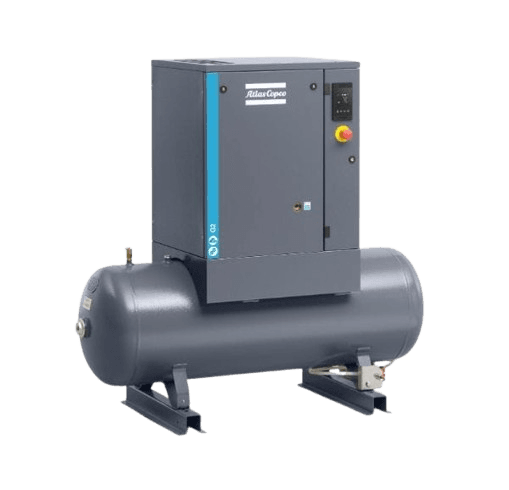Services
Air Compressors for Recycling Plants & MRF Facilities in the UK
Whether at the front line of sorting or on the shop floor, compressed air in the UK recycling industry is used to power everything from optical sorters to conveying systems. The availability, quality, and cleanliness of compressed air are vital to the processing throughput, energy consumption, and quality of the final product. When compressed air systems fall short, processing costs and compliance risks can quickly escalate.
In this guide, we deliver all the necessary knowledge and information that recycling plant operators require to specify, maintain, and optimise their compressed air system correctly. We explore the main applications and environmental conditions faced in the recycling industry, as well as the engineered solutions and services needed to help your facility operate at maximum efficiency.
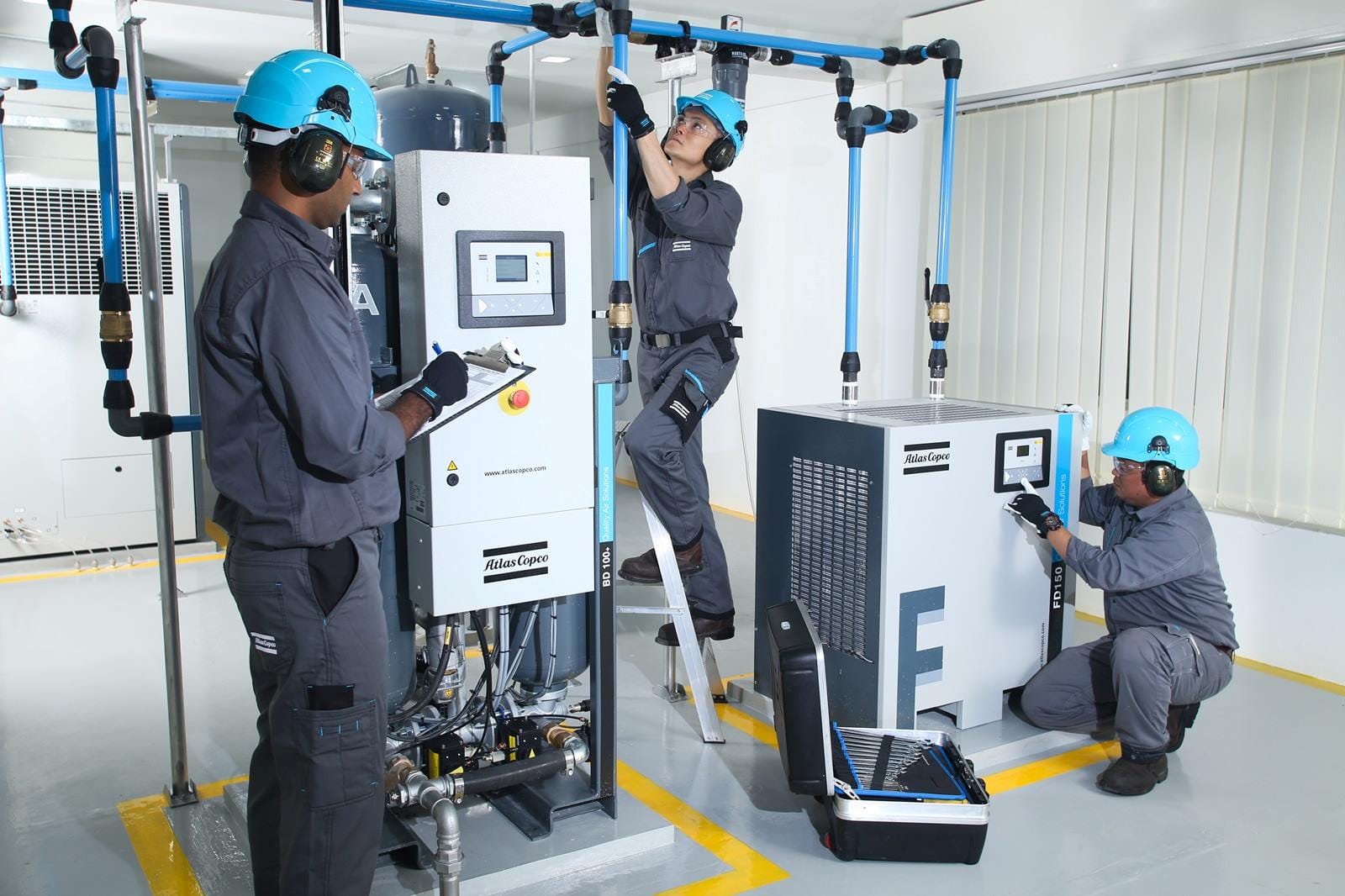

Compressed Air: The Critical Driver of Recycling Operations
Treating compressed air as a “white noise” utility is expensive. It’s a crucial element in the automated processes that power today’s Material Recovery Facilities (MRFs) and specialised recycling plants. The quality, pressure, and reliability of your air supply impact the effectiveness of sorting technologies, the safety of your work environment, and your plant’s energy consumption.
Investing in a correctly engineered system is an investment in productivity. At Search Air, we help facilities across Yorkshire and the East Midlands transform their compressed air systems from a major cost centre into a strategic asset.
Key Compressed Air Applications Across the Recycling Stream
Compressed air powers almost every stage of the recycling process, from initial handling to materials separation. An effective system design begins by understanding the precise requirements of these diverse applications.
Optical Sorting & Material Separation
Accuracy and precision are critical in optical sorting. Materials rejected by the system’s optical sensors are ejected using fast-acting pneumatic jets. This requires a continuous supply of ultra-clean, dry compressed air. Moisture and oil aerosols can damage sensitive optics and clog valves, resulting in valuable polymers like PET and HDPE being incorrectly sorted or even causing downtime.
Pneumatic Conveying
Industrial blowers and compressed air systems are used in the pneumatic conveying of lightweight shredded materials, such as plastics, paper fibres, and aluminium cans, among others. Pneumatic conveying systems have a smaller footprint than belt conveyors, and the contained process minimises airborne dust, improving operator safety.
Heavy-Duty Processing & Handling
Facilities for metals and e-waste recovery often utilise compressed air to power heavy-duty pneumatic tools, cutters, and lifts that can handle the weight and abrasiveness of these materials during the dismantling and material handling process.
Baling & Compaction
Hydraulic rams provide the leading force for baling and compaction, but compressed air plays a key role in actuating the control valves for these machines. Reliable compressed air pressure ensures consistent and efficient compaction of sorted materials into transport-ready bales.
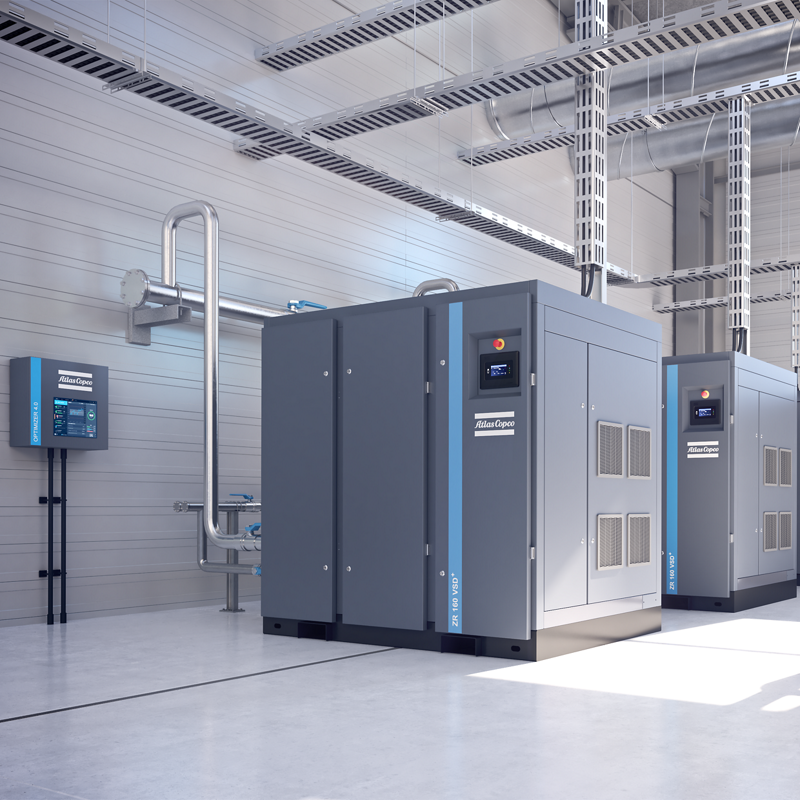
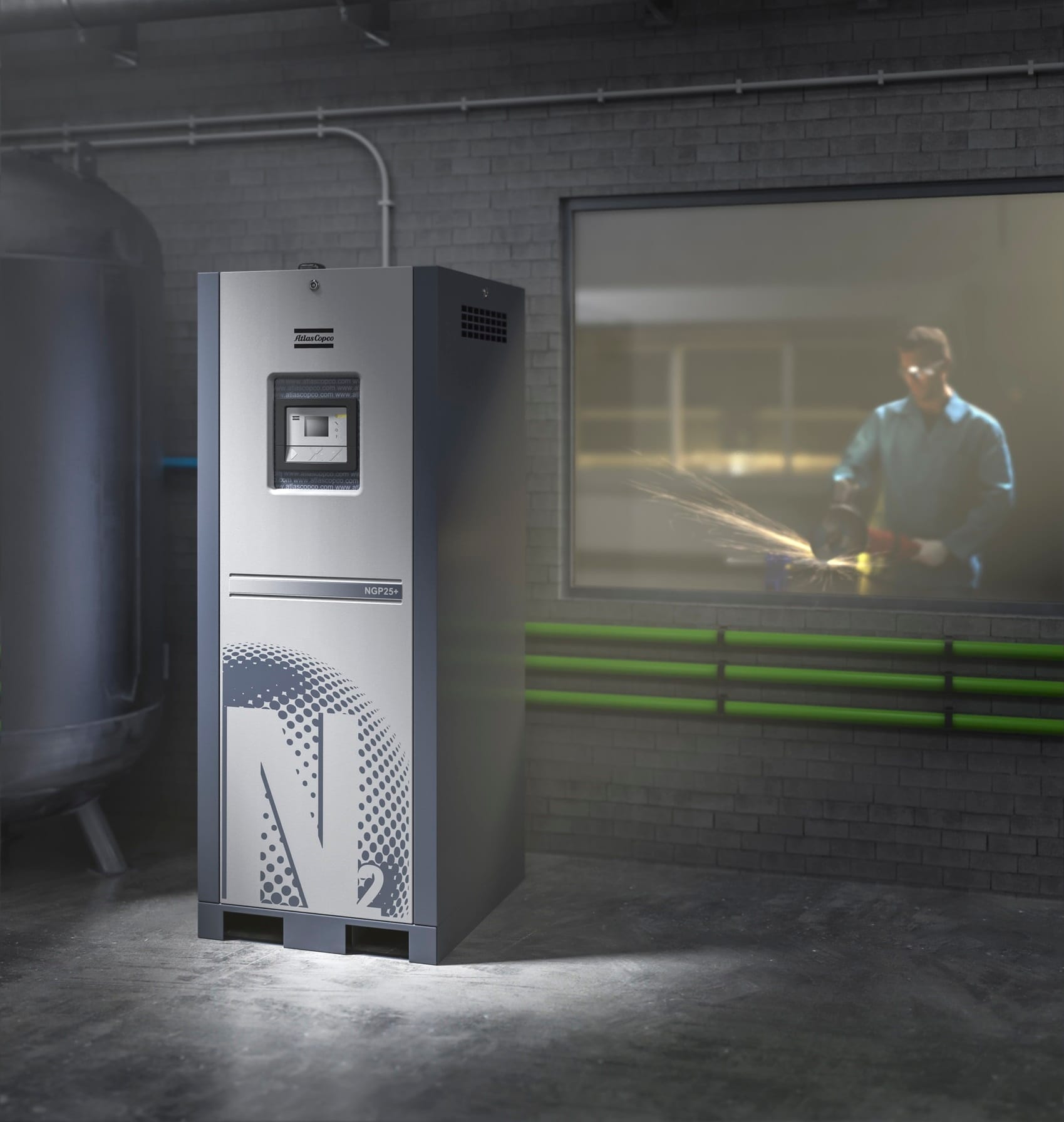
Dust Management & Facility Safety
The shredding and movement of recovered materials inevitably create large volumes of airborne dust. Dust suppression systems for recycling plants are often pneumatic in nature. Industrial vacuum systems for removing combustible dust layers are also critical to DSEAR compliance and preventing fires from spreading.
Typical Significant Pressed Air Applications in Recycling:
| Application | Equipment Used | Air Quality Required |
|---|---|---|
| Optical Sorting | Pneumatic jets | ISO Class 1.2.1 |
| Pneumatic Conveying | Blowers | Class 4.4.4 |
| Dust Management | Air knives, vacuums | Class 3.4.3 |
| Baling Systems | Control valves | General plant air |
| Maintenance Tools | Shop air tools | Lubricated, Class 5.4.4 |
Not sure if your system needs attention? Look for:
- Visible dust or condensation in lines
- Unexplained downtime or sorter failures
- High electricity bills from compressor usage
- Inconsistent baler performance
- No record of a recent Written Scheme of Examination
👉 If any of these apply, contact us for a free visual airCHECK.
Solving the Biggest Compressed Air Challenges in Recycling Plants
Recycling facilities are one of the most demanding environments for industrial equipment. A successful compressed air strategy must directly address the challenges of contamination, high energy costs, and the need for absolute reliability.
Contamination Control: The Fight Against Dust & Moisture
The dusty and often humid air in a recycling plant is the primary enemy of a compressed air system. Airborne particulates clog filters and coolers, causing compressors to overheat and work harder. Moisture condenses in pipework, leading to corrosion and equipment damage.
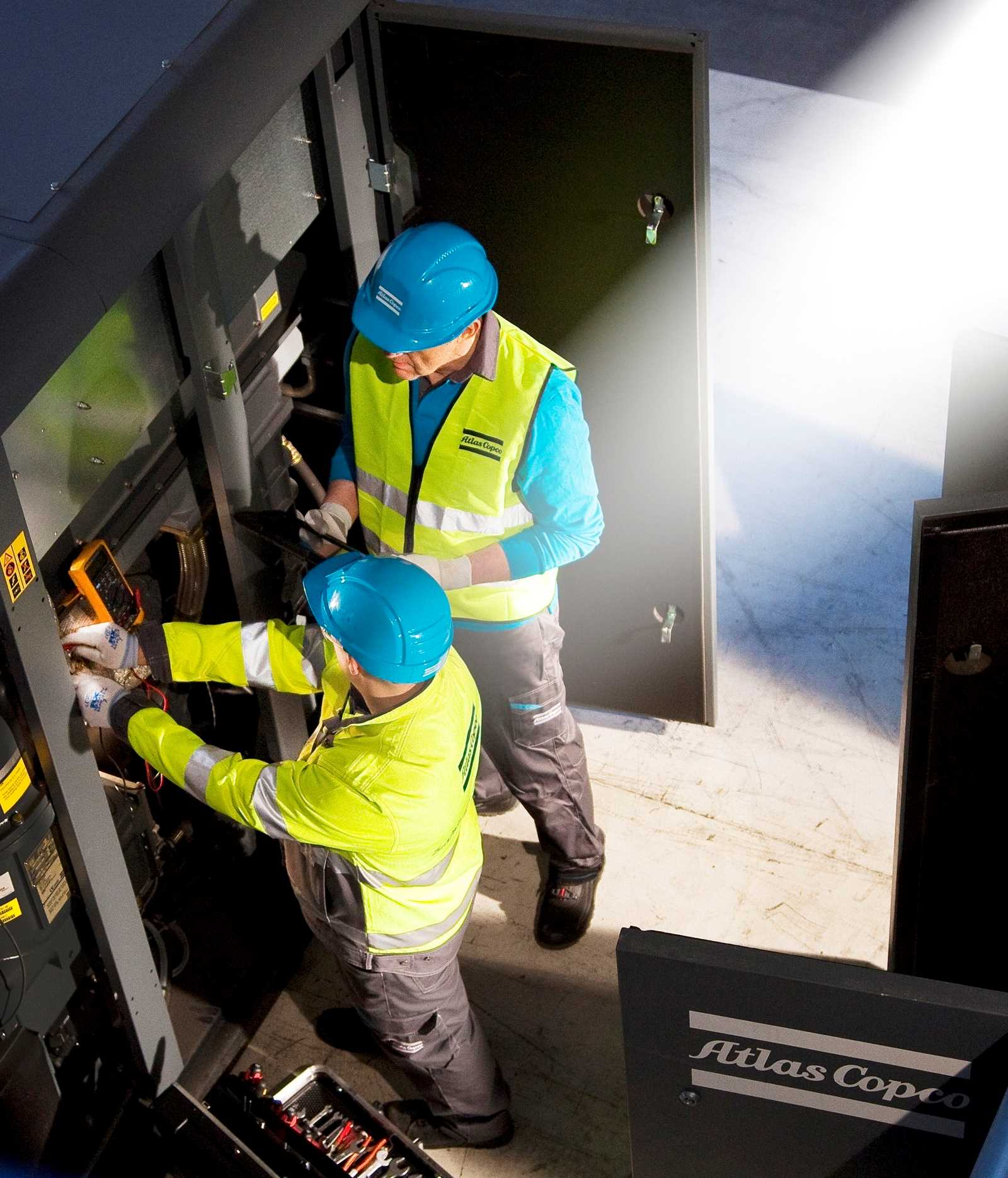
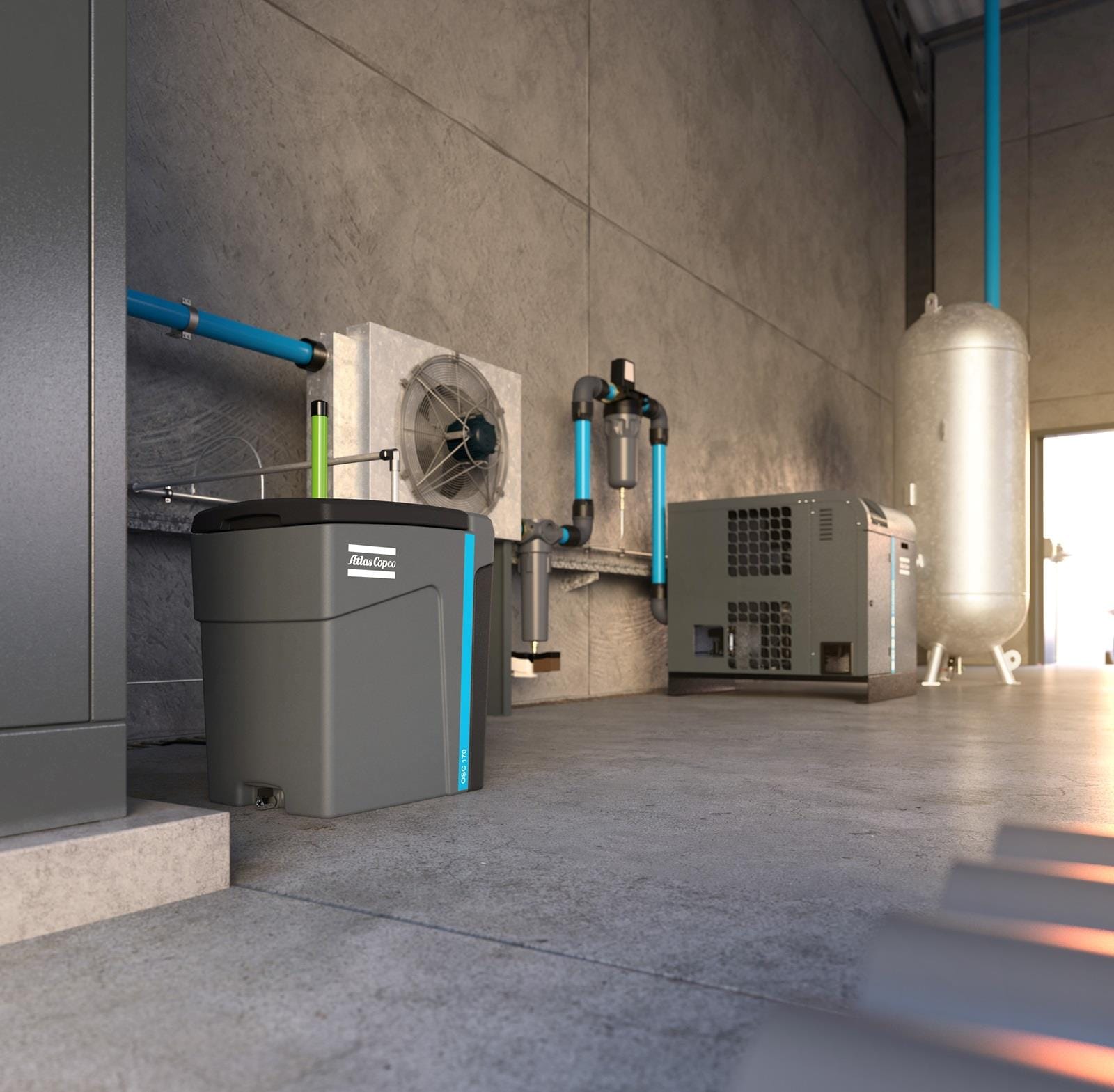
- A robust air drying and filtration system is essential. The required air quality is defined by the international standard ISO 8573-1:2010.
- For optical sorters: A specification of Class 1.2.1 (Particulates.Water.Oil) is often required, mandating the use of high-efficiency filters and desiccant dryers to achieve a pressure dew point of -40°C.
- For general plant air: Refrigerated dryers are typically sufficient to prevent liquid water formation.
- Furthermore, the oily condensate collected from a system is classified as hazardous waste. Legally compliant discharge requires the use of oil-water separators and zero-loss drains to prevent pollution and avoid wasting compressed air.
Energy Efficiency: Reducing Operational Costs
Energy can account for over 80% of a compressor’s lifecycle cost. Inefficient systems waste thousands of pounds annually. The primary solutions include:
Uptime & Reliability: Preventing Costly Production Stops
When the compressed air stops, production stops. For a highly automated facility, the financial impact of unplanned downtime can amount to thousands of pounds per hour. System reliability is achieved through robust equipment designed for 24/7 operation and a proactive maintenance strategy.
With Atlas Copco SMARTLINK monitoring, Search Air can provide predictive maintenance, combined with maintenance alerts that prevent faults from disrupting production. Search Air provides bespoke preventative maintenance plans and Air Compressor Repairs, Maintenance and Breakdowns support 24/7 to keep your facility running.
Ensuring UK Regulatory Compliance
UK recycling plants are heavily regulated. Compressed air systems must be designed and maintained in compliance with these regulations, or risk fines, closure, and non-compliance.

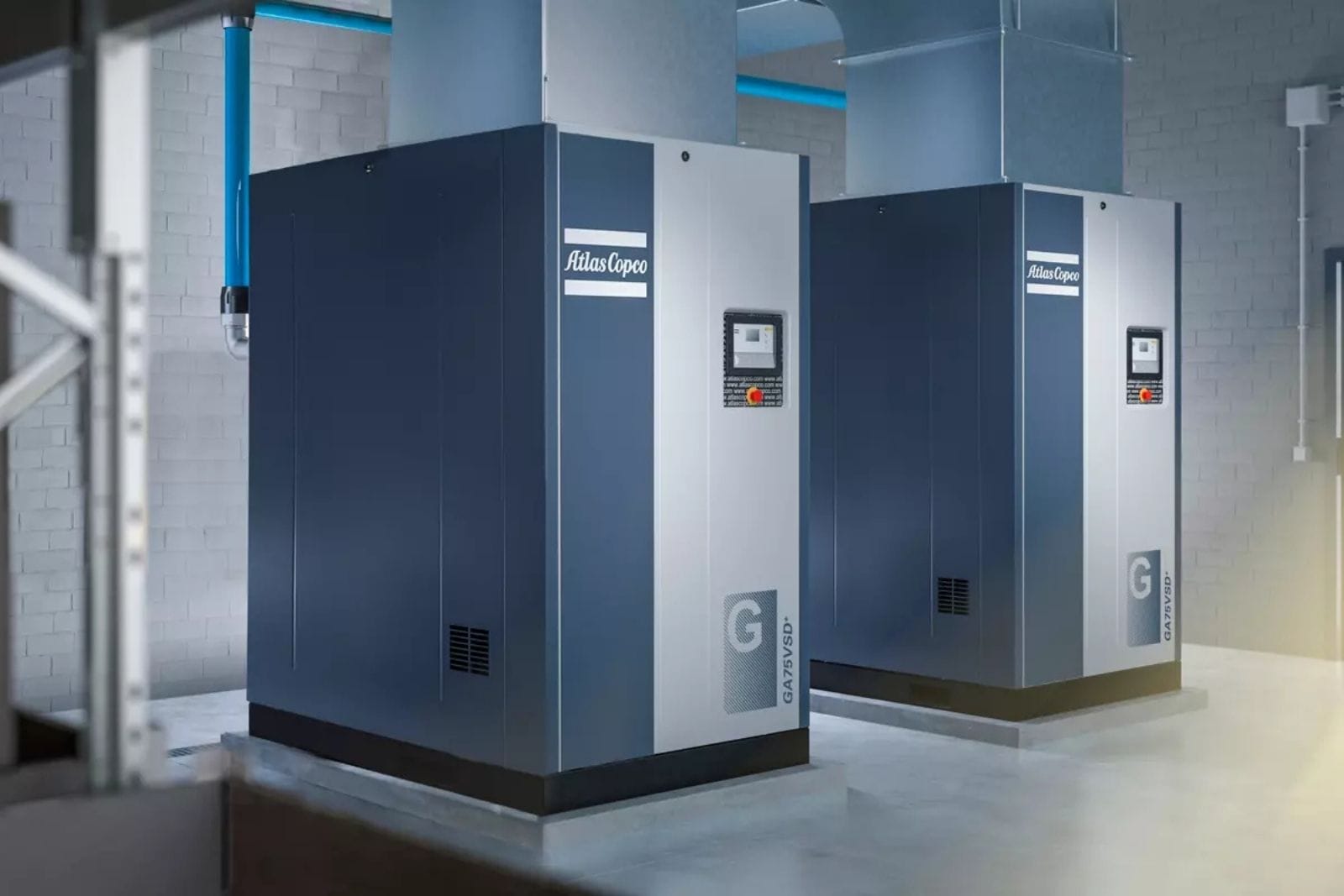
- Pressure Systems Safety Regulations 2000 (PSSR): This legislation aims to prevent the possibility of a serious personal injury resulting from stored energy. A key legal requirement of this regulation is a Written Scheme of Examination (WSE) certified by a competent person, before any pressure system over 250 bar-litres is put into use.
- Dangerous Substances and Explosive Atmospheres Regulations 2002 (DSEAR): Many materials stored and processed in a recycling plant can create combustible dust. DSEAR aims to prevent these explosions by requiring a complete risk assessment to identify and mark hazardous zones where an explosive atmosphere could exist. Any equipment that will operate in these dangerous areas must be ATEX-certified to prevent it from becoming an ignition source.
Need help with your Written Scheme of Examination or DSEAR risk assessment? Our compliance engineers can manage everything from the documentation to installing ATEX-rated equipment.
Your Expert Partner for Compressed Air in Recycling
Selecting the correct Air Compressors and system design is a specialist skill and requires an experienced engineering partner. At Search Air, we have been working in the industry for over 78 years, and have been a leading Atlas Copco distributor since 2001. We are the experienced and trusted Air Compressors for recycling companies across the UK.
Based in Leeds, Sheffield, and Nottingham, our factory-trained engineers offer a truly full lifecycle service. The initial stage will involve an in-depth Air Compressor Energy Audit to identify your specific requirements and pinpoint areas where savings can be made. We then take care of turnkey system design, installation, commissioning, and maintenance to ensure your system works as efficiently and reliably as possible.

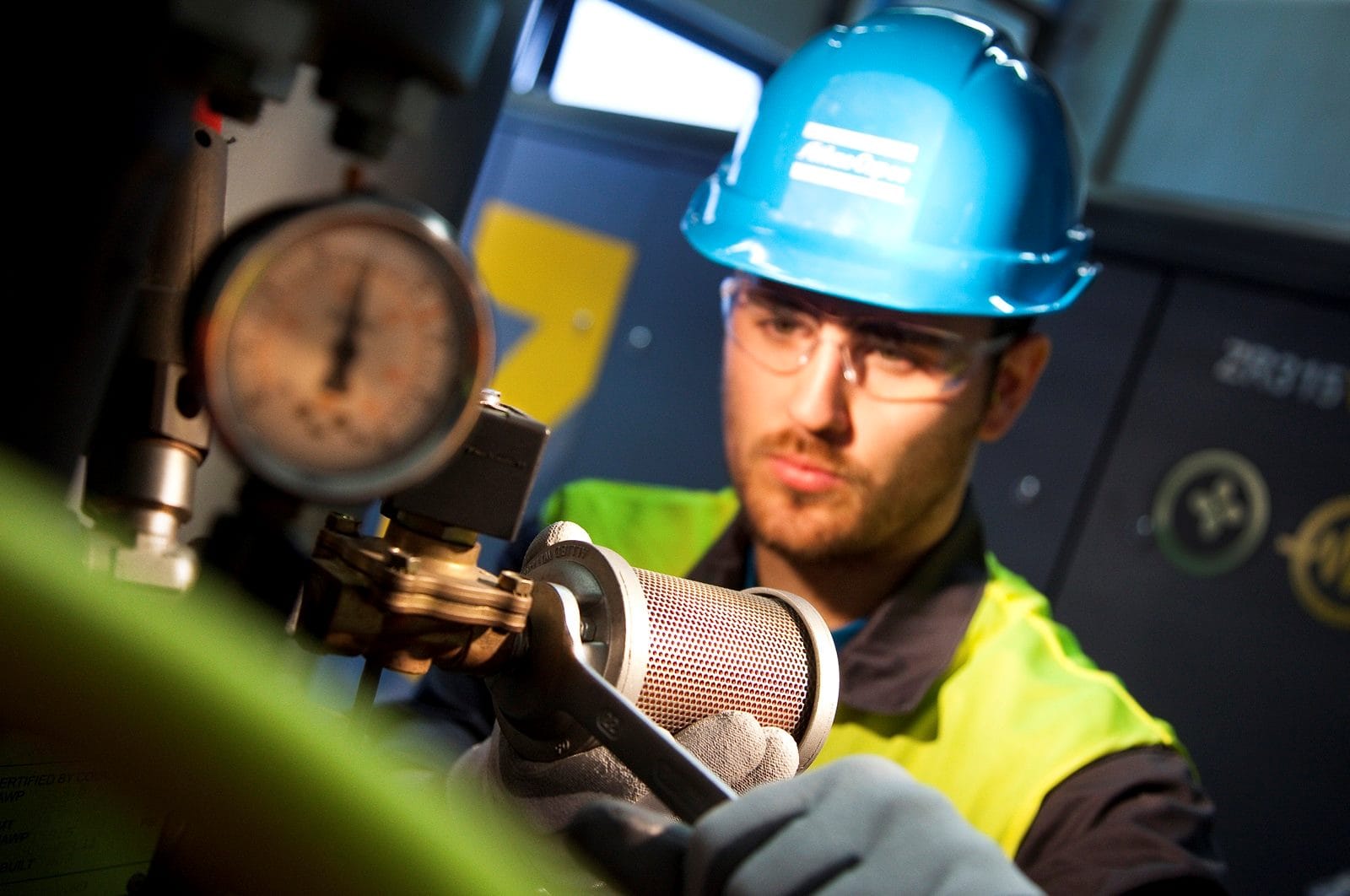
Start Optimising Your System Today
If your recycling facility utilises compressed air to power essential processes, a bespoke system could reduce energy costs, increase uptime, and help ensure compliance – without requiring the replacement of existing equipment.
Get in touch with the Search Air team today to arrange a free, no-obligation site survey and find out just how much energy – and money – you could be saving. We cover facilities in Leeds, Sheffield, Nottingham, and all over Yorkshire and the East Midlands, so our engineers will be close by.
Want to know more about our recycling service?
Contact us